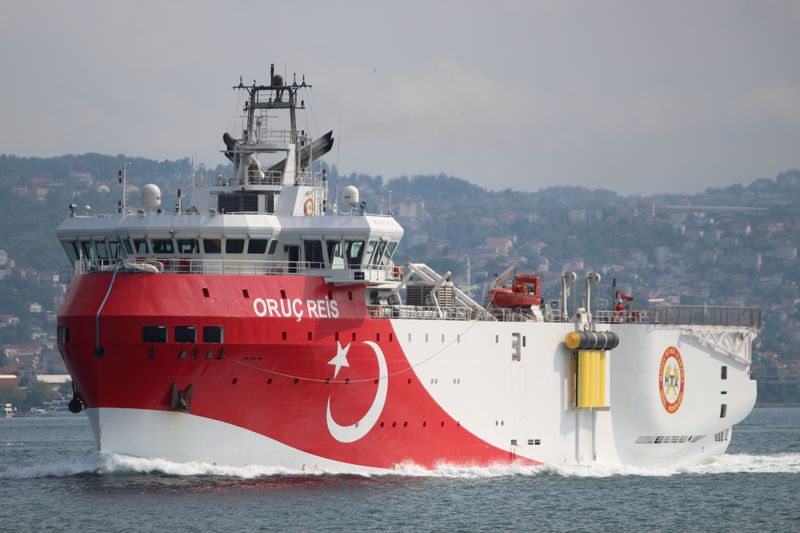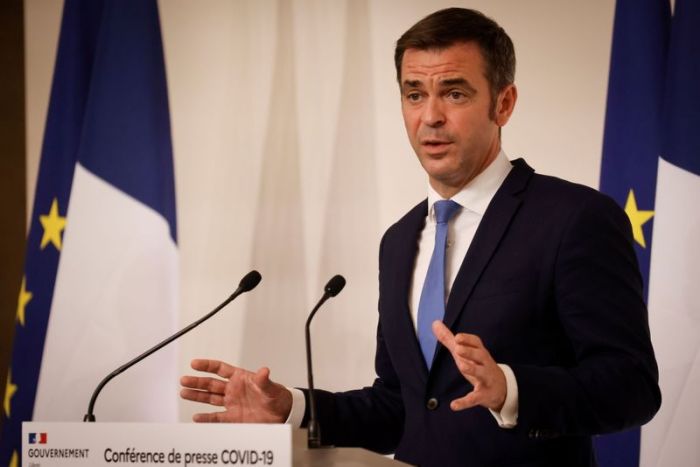ISTANBUL/ATHENS (Reuters) – Turkey has extended the seismic survey work of its Oruc Reis ship in a disputed area of the eastern Mediterranean until Nov. 4 – a move that Greece condemned on Sunday as “illegal”.
Turkey said Greece’s accusation was “baseless” as tensions between the NATO members flared again in a dispute over the extent of their continental shelves and conflicting claims to hydrocarbon resources in the eastern Mediterranean.
The row erupted in August when Turkey sent the Oruc Reis into waters also claimed by Greece and Cyprus, both of them members of the European Union.
Along with two other ships, the Oruc Reis will operate south of the Greek island of Rhodes until Nov. 4, according to a Turkish naval maritime notice issued late on Saturday. A previous notice scheduled survey work in the area until Oct. 27.
The Greek Foreign Ministry said it would file a complaint with the Turkish side following the new advisory.
It said the extension of the survey was an “illegal move” at odds with efforts to ease tensions and with recent conclusions of the council of EU heads of government. Turkey, it added, was behaving “like a pariah” and seeking to destabilise the region.
“Greece blatantly condemns this unacceptable behaviour, which is essentially moving even further away from the prospect of a constructive dialogue,” the ministry said, calling for the advisory to be revoked immediately.
Turkey’s foreign ministry said the Greek statement was “baseless” and the area where Oruc Reis was operating was within Turkey’s continental shelf.
Turkey was ready to talk and cooperate to find a just solution, it added. “We expect Greece to desist from setting pre-conditions and creating artificial reasons for not entering into dialogue with our country.”
Ankara withdrew Oruc Reis last month to allow for diplomacy before an EU summit, where Cyprus sought sanctions against Turkey. It was sent back this month, prompting an angry reaction from Greece, France and Germany.
After the summit, the 27-nation EU said it would punish Turkey if it continued its operations in the region, a message Ankara said further strained Turkey-EU relations.
(Additional reporting by Angeliki Koutantou in Athens; Writing by Daren Butler; Editing by Mark Heinrich and Andrew Heavens)

























